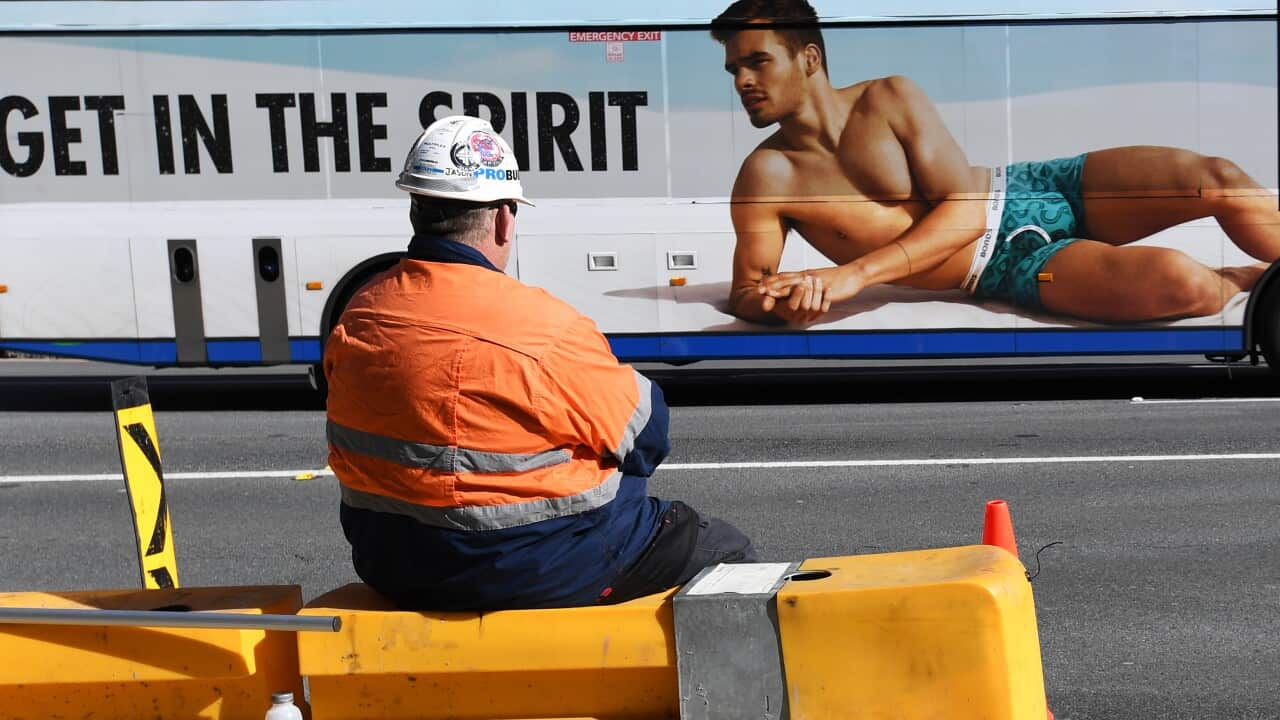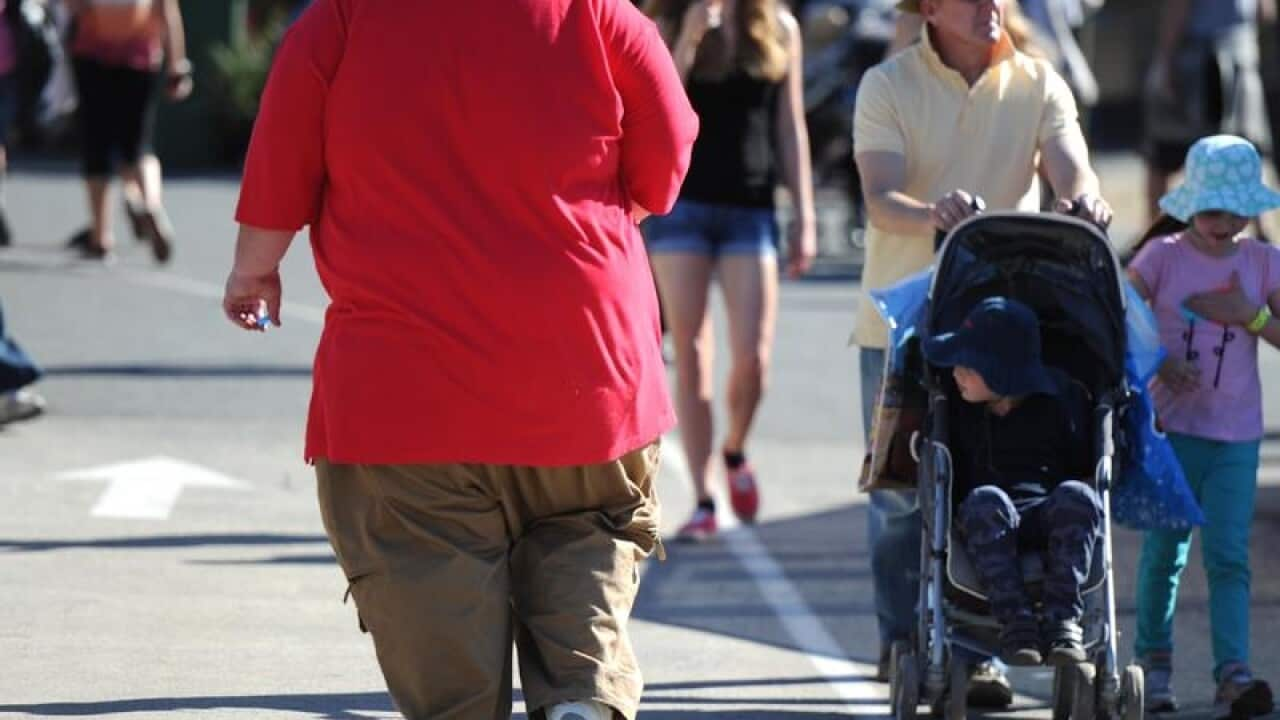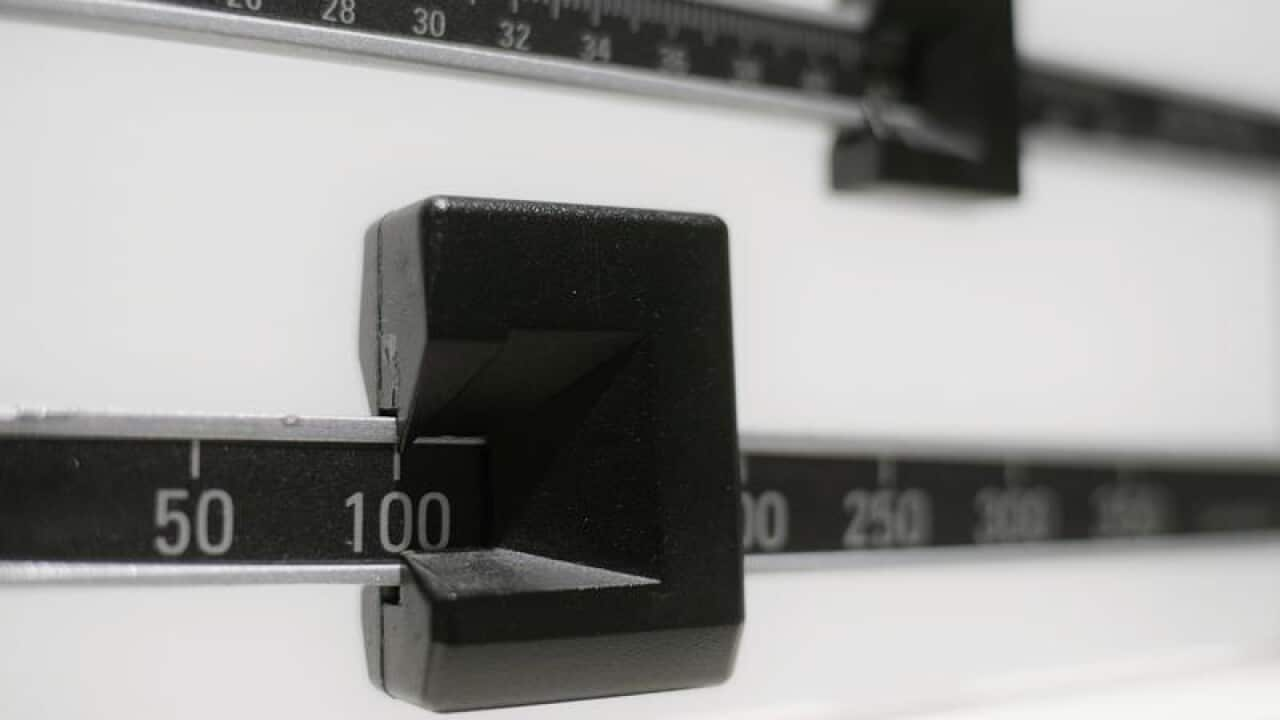Key Points
- In Australia, currently 63.4 per cent of adults and 24 per cent of children are considered overweight or obese.
- The World Obesity Federation projects 51 per cent of the global population will be overweight or obese by 2035.
- The economic impact of the increased rate of obesity is projected to be $6.38 trillion.
New data released by the projects 51 per cent of the global population will be overweight or obese by 2035 - that's a rise of 13 per cent in 12 years.
The increase will be the fastest among children globally, and also in lower-income countries in Asia and Africa.
The World Obesity Federation is urging all nations to implement an urgent action plan of prevention and treatment measures.
Without this, it predicts the economic impact of the increased rate of obesity will be $6.38 trillion, about three per cent of global GDP.
Battling barriers
Staying healthy is top of mind for Brinae Smith, an Indigenous woman who lives in Dubbo in western New South Wales.
She has three children and is an advocate of step challenges, marathons and tough mudder events - sharing her struggles with mental health and living with obesity with other mums in her local community.
"There are a lot of barriers out there, a lot of things out there, that could help me stay a lot bigger than I want to be. But I think if I just keep my head down and pushing through - I can achieve it."
Some of the barriers include battling mental health, and the added health risks of chronic disease and lower life expectancy faced by Indigenous Australians, particularly those who live in regional and rural Australia.

Brinae Smith with her son. She enjoys participating in tough mudders - like this one in Dubbo in 2022 - to show her children the importance of maintaining regular movement and healthy food habits.
"And you go through a trauma of almost losing your child - and the last thing you want to think about is eating," Ms Smith said. "I got to a point where I weighed myself and I was 112 kilos - and that was the biggest, I had ever been."
What turned it all around was wanting to be around for her children.
"With my weight, I was always aware of it - and I wasn't happy with it. But where my kids started to acknowledge it and notice it - that is when it affected me the most because I was like: I want to still be here - and go play sport with my kids."
Obesity stigma
Sydney GP Georgia Rigas says like with many health issues, early intervention is the key, but unless patients are open to asking for help - many suffer in silence.
It is an issue she has come across working with patients but has also researched as a study lead author on why people with obesity delay seeking healthcare.
"We firstly have this issue whereby people do not even recognise that they are living with obesity," Ms Rigas said. "The second fact that came out of that study was that people living with obesity tend to wait about nine years before they have that discussion with their healthcare professional.
"So they try to manage their weight, and more importantly the impact it has on their health on their own. And as a doctor of over 20 years, I can't think of a single other health condition where patients think that they need to do it on their own. And this really speaks to obesity stigma."
Dr Rigas says excess weight is related to many other health conditions including heart disease, type 2 diabetes and at least thirteen forms of cancer that can severely impact a person's quality of life.
The effects can also be intergenerational - and is more likely to affect groups experiencing greater levels of social inequality, including Indigenous Australians, migrants and those living in regional and rural Australia.
"What we're seeing is that those who are primarily affected are the less likely to come forward to access help," Dr Rigas said.
"Either because where they're living they don't have the resources available - or they don't have private health insurance to access some of the more effective therapies that are currently not subsidised by the government. Or in the case of some therapies, might be partially.
"Then there is also the cultural barriers where in some cultural environments, it is actually considered noble or fashionable - or actually a sign of good health, if a person is above a healthy weight because it means you are wealthy - or that you don't have disease."
Dr Rigas says while it can be a challenging conversation to have, GPs can play an important role in helping patients feel comfortable in seeking help.
She is calling for more training support for GPs, as well as the inclusion of medicines on the government-subsidised medicines list to help patients.
The situation in Australia
In Australia, 63.4 per cent of adults and 24 per cent of children are considered overweight or obese, according to the Australian Institute of Health and Welfare.
The CEO of Research Australia, Nadia Levin, said it is concerning that Australia is in the top five countries in the OECD with the highest proportion of adults who are classified as overweight or obese.
"Almost 10 per cent of the total burden of disease in Australia is due to overweight and obesity," Ms Levin said. "And it is the leading risk factor contributing to some pretty serious health outcomes. And from an OECD point of view, you're talking about international figures.
"Again, we're saying that treating diseases caused by obesity is going to cost an average of just under 10 per cent of a country's total healthcare spending. So there is the monetary side of things. But more importantly, are the other health impacts where you've got children who are living with overweight and obesity and that trend is continuing and getting worse."
Her group has analysed where gaps may exist in the research and funding to deliver on Australia's 2030 targets listed in the 10-year National Obesity Strategy launched last year.
One target aims to reduce the prevalence of obesity in adults generally - and the other target seeks to see the rates decrease among children by five per cent.
She says achieving those goals will require looking at where the most impact can be made.
"What is the clearer picture of the true social, economic personal impacts of obesity," Ms Levin said.
"We know that obesity disproportionately impacts Aboriginal and Torres Strait Islanders, people living in regional and remote communities, the CALD community, older adults. So intervention and prevention have to be developed in partnership with diverse groups, with consumers to develop appropriate interventions, preventions, treatments."
For Brinae Smith, she is aware of the higher risk of chronic disease and lower life expectancy she faces as an Indigenous Australian.
Sharing her story with her community has been part of the journey - and she hopes it encourages others to seek help earlier.
"I have a lot of people back home who get really inspired by what I do and how I post my hard days, my good days - some days where I feel like I don't want to get out of bed," Ms Smith said. "And I didn't realise I was doing that. That was more so for me being accountable for what I was doing.
"But to be able to inspire other people is what really made it worthwhile because I just consider myself a mum of three kids, running a business, completely exhausted some days. And then there are other times where I'm like: you know what? I actually smashed that, I need to be more proud of myself."














